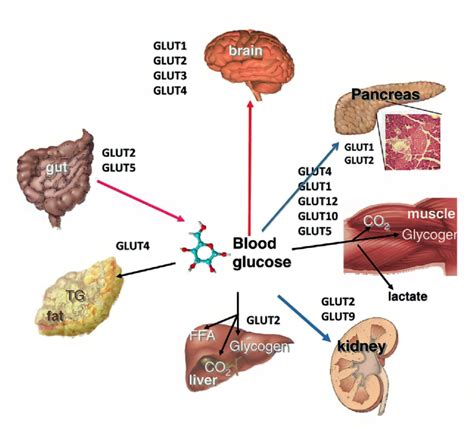Intro
Discover 5 ways to balance glucose levels, managing diabetes and blood sugar control through healthy diet, exercise, and lifestyle changes, promoting insulin sensitivity and glucose metabolism for overall wellness.
Maintaining balanced glucose levels is crucial for overall health and well-being. Glucose, a simple sugar, serves as the primary source of energy for the body's cells. However, fluctuations in glucose levels can lead to various health issues, including diabetes, fatigue, and weight gain. Fortunately, there are several ways to balance glucose levels, and understanding these methods can help individuals take control of their health.
The importance of glucose balance cannot be overstated. When glucose levels are within a healthy range, the body functions optimally, and energy levels remain stable. On the other hand, imbalanced glucose levels can lead to a range of problems, from mild symptoms like shakiness and dizziness to severe complications like organ damage and cardiovascular disease. By learning how to balance glucose levels, individuals can reduce their risk of developing these conditions and maintain optimal health.
In recent years, there has been a growing interest in natural and holistic approaches to health, including glucose balance. While conventional medical treatments often focus on managing symptoms, holistic methods aim to address the underlying causes of imbalance. By incorporating dietary changes, lifestyle modifications, and supplements into their daily routine, individuals can promote glucose balance and overall well-being. In this article, we will explore five ways to balance glucose levels, providing a comprehensive guide for those seeking to take control of their health.
Understanding Glucose Balance

Factors Affecting Glucose Balance
Several factors can influence glucose balance, including diet, physical activity, stress levels, and sleep quality. A diet high in refined carbohydrates and added sugars can lead to glucose spikes, while a lack of physical activity can reduce the body's ability to regulate glucose levels. Chronic stress and poor sleep quality can also disrupt glucose balance by increasing cortisol levels, a hormone that raises blood sugar levels.Dietary Changes for Glucose Balance

Benefits of a Balanced Diet
A balanced diet provides numerous benefits for glucose balance, including: * Regulating blood sugar levels * Improving insulin sensitivity * Reducing inflammation * Promoting weight loss * Supporting overall health and well-beingLifestyle Modifications for Glucose Balance

Benefits of Lifestyle Modifications
Lifestyle modifications can have a significant impact on glucose balance, offering benefits like: * Improved insulin sensitivity * Enhanced glucose uptake in cells * Reduced inflammation * Better weight management * Increased energy levelsSupplements for Glucose Balance

Benefits of Supplements
Supplements can provide additional support for glucose balance, offering benefits like: * Regulating blood sugar levels * Improving insulin function * Reducing inflammation * Promoting weight loss * Supporting overall health and well-beingMonitoring Glucose Levels

Benefits of Monitoring Glucose Levels
Monitoring glucose levels provides valuable insights into glucose balance, offering benefits like: * Early detection of glucose imbalances * Identification of factors affecting glucose balance * Personalized treatment plans * Improved glucose control * Reduced risk of complicationsMaintaining Glucose Balance

What are the symptoms of glucose imbalance?
+Symptoms of glucose imbalance can include shakiness, dizziness, fatigue, and weight gain. In severe cases, glucose imbalance can lead to complications like organ damage and cardiovascular disease.
How can I balance my glucose levels naturally?
+Natural methods for balancing glucose levels include dietary changes, lifestyle modifications, and supplements. A balanced diet that includes plenty of whole, unprocessed foods, regular physical activity, and stress-reducing techniques can help regulate glucose levels.
What supplements are effective for glucose balance?
+Supplements like chromium, berberine, cinnamon, alpha-lipoic acid, and omega-3 fatty acids can support glucose balance. However, it is essential to consult with a healthcare professional before adding any supplements to your routine.
How often should I monitor my glucose levels?
+The frequency of glucose monitoring depends on individual needs and health status. Generally, it is recommended to monitor glucose levels at least once a day, but more frequent monitoring may be necessary for those with diabetes or other health conditions.
What are the benefits of maintaining glucose balance?
+Maintaining glucose balance offers numerous benefits, including improved energy levels, weight management, and reduced risk of complications like organ damage and cardiovascular disease. By prioritizing glucose balance, individuals can promote overall health and well-being.
In conclusion, balancing glucose levels is a crucial aspect of maintaining overall health and well-being. By understanding the factors that affect glucose balance and incorporating dietary changes, lifestyle modifications, and supplements into their daily routine, individuals can promote glucose balance and reduce their risk of developing related health issues. Regular monitoring of glucose levels and adjustments to treatment plans as needed can also help maintain optimal glucose balance. We invite you to share your thoughts and experiences with glucose balance in the comments below, and to explore other articles on our website for more information on maintaining optimal health.
